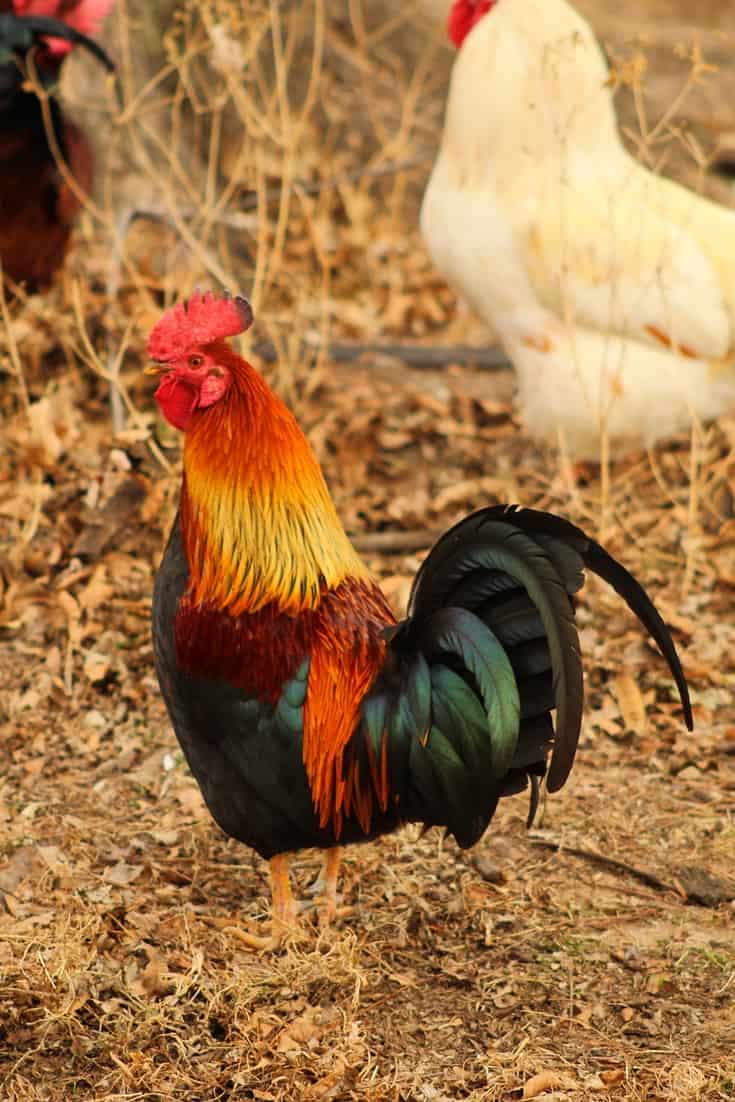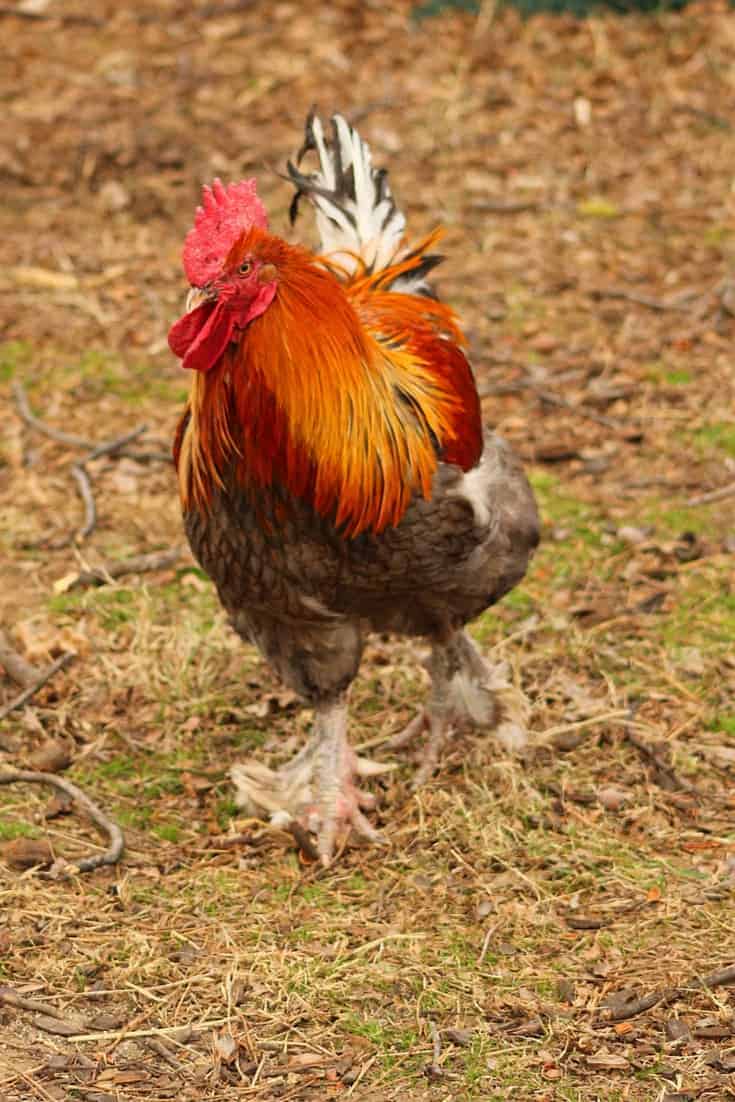Will Chickens Lay Eggs Without A Rooster? Everything You Need To Know
Chickens are fascinating creatures, and their egg-laying capabilities often spark curiosity among poultry enthusiasts and new farmers alike. If you're wondering whether chickens can lay eggs without a rooster, you're in the right place. Understanding this process is essential for anyone interested in raising backyard chickens or managing a poultry farm.
Many people mistakenly believe that a rooster is necessary for hens to lay eggs. However, the truth is more nuanced. Chickens have a natural biological function that allows them to produce eggs regardless of the presence of a rooster. This article will explore the science behind egg-laying and address common misconceptions.
Whether you're planning to start a small flock or simply want to expand your knowledge about poultry, this guide will provide you with all the information you need. From the role of roosters to the nutritional needs of egg-laying hens, we'll cover everything in detail.
- The Boring Company Net Worth Unveiling Elon Musks Visionary Tunneling Enterprise
- Wedding Marriage And Souza Husband A Comprehensive Guide
Table of Contents
- The Biology of Egg-Laying in Chickens
- The Role of a Rooster in Egg-Laying
- Difference Between Fertilized and Unfertilized Eggs
- Choosing the Right Chicken Breed for Egg Production
- Nutritional Requirements for Egg-Laying Hens
- Healthcare and Egg Production
- Creating the Ideal Environment for Egg-Laying
- Debunking Common Myths About Egg-Laying
- Practical Tips for Maximizing Egg Production
- Conclusion: Will Chickens Lay Eggs Without a Rooster?
The Biology of Egg-Laying in Chickens
Understanding the biology of egg-laying is the first step in answering the question, "Will chickens lay eggs without a rooster?" Female chickens, or hens, have a natural reproductive cycle that enables them to produce eggs regularly. This process is driven by hormonal changes and is not dependent on the presence of a male chicken.
Each hen has two ovaries at birth, but only one becomes fully functional as she matures. The ovary produces ova (egg yolks), which travel through the oviduct. Along the way, the yolk is surrounded by albumen (egg white), the shell membranes, and finally the hard outer shell. This entire process takes approximately 25-26 hours.
Even without a rooster, hens will continue to lay eggs as long as they are healthy and receive proper care. However, these eggs will not be fertilized and therefore cannot hatch into chicks.
Key Stages in Egg Formation
- Ovulation: The release of the yolk from the ovary.
- Albumen Secretion: The yolk is coated with egg white in the magnum section of the oviduct.
- Shell Membrane Formation: The inner and outer shell membranes are added.
- Shell Formation: The hard shell is deposited in the uterus.
The Role of a Rooster in Egg-Laying
Roosters play a specific role in the reproductive process of chickens, but it is not directly related to egg-laying. A rooster's primary function is to fertilize eggs by mating with hens. When a rooster mates with a hen, sperm is transferred to the hen's reproductive system, where it can fertilize an egg if the timing aligns with ovulation.
However, the presence of a rooster is not required for hens to lay eggs. In fact, many backyard chicken keepers choose to raise hens without a rooster to avoid aggressive behavior and noise. Roosters are only necessary if you want to produce fertilized eggs for hatching.
Benefits and Drawbacks of Keeping a Rooster
- Benefits: Protects the flock from predators and ensures genetic diversity in hatching eggs.
- Drawbacks: Can be noisy, aggressive, and may not be allowed in certain urban areas.
Difference Between Fertilized and Unfertilized Eggs
One of the most common questions about chicken egg-laying is whether there is a difference between fertilized and unfertilized eggs. While both types of eggs are nutritionally identical, their potential for hatching is what sets them apart.
Fertilized eggs contain a developing embryo if kept under the right conditions (temperature and humidity). Unfertilized eggs, on the other hand, do not have the potential to hatch and are safe for human consumption. Most eggs sold in grocery stores are unfertilized because they come from commercial farms that do not keep roosters.
How to Identify Fertilized Eggs
Fertilized eggs can be identified by a small white spot called the blastoderm, which appears after fertilization. However, this spot is often difficult to see without special lighting. If you're unsure whether an egg is fertilized, you can use a process called candling to inspect it.
Choosing the Right Chicken Breed for Egg Production
Not all chicken breeds are created equal when it comes to egg production. Some breeds are known for their high egg-laying capacity, while others are more suited for meat production or ornamental purposes. If your goal is to maximize egg production, it's essential to choose the right breed.
Top Egg-Laying Breeds
- White Leghorn: Known for producing large numbers of white eggs.
- Rhode Island Red: A dual-purpose breed that lays brown eggs and is also good for meat.
- Ameraucana: Produces blue or green eggs and is popular among backyard chicken keepers.
- Plymouth Rock: A hardy breed that lays brown eggs and adapts well to various climates.
Nutritional Requirements for Egg-Laying Hens
Proper nutrition is critical for maintaining the health of egg-laying hens and ensuring consistent egg production. Hens require a balanced diet rich in protein, calcium, and other essential nutrients to support their reproductive cycle.
A high-quality layer feed should be the foundation of your hens' diet. This feed typically contains 16-18% protein and is fortified with calcium to support strong eggshells. Additionally, providing free-choice oyster shells or crushed eggshells can help meet their calcium needs.
Key Nutrients for Egg-Laying Hens
- Protein: Essential for egg formation and overall health.
- Calcium: Necessary for strong eggshells.
- Vitamins and Minerals: Support reproductive health and immune function.
Healthcare and Egg Production
Regular healthcare practices are crucial for maintaining the productivity of your egg-laying hens. Diseases, parasites, and stress can all negatively impact egg production. To keep your flock healthy, it's important to implement preventive measures and monitor their behavior closely.
Vaccinations, deworming, and regular check-ups with a veterinarian can help prevent common health issues. Additionally, providing a clean and comfortable living environment will reduce stress and improve overall well-being.
Signs of Illness in Egg-Laying Hens
- Decreased appetite
- Reduced egg production
- Ruffled feathers
- Swollen eyes or wattles
Creating the Ideal Environment for Egg-Laying
The environment in which your chickens live can significantly impact their egg-laying performance. Hens require a safe, clean, and comfortable space to thrive. Proper housing, lighting, and nesting areas are all essential components of an ideal egg-laying environment.
Chickens need about 14-16 hours of light per day to maintain optimal egg production. If natural daylight is insufficient, supplemental lighting can be used to extend their day. Additionally, providing nesting boxes filled with soft bedding will encourage hens to lay eggs in a clean and organized manner.
Key Features of a Good Coop
- Adequate space per chicken (at least 3-4 square feet indoors and 8-10 square feet outdoors).
- Secure fencing to protect against predators.
- Ventilation to prevent moisture buildup and respiratory issues.
Debunking Common Myths About Egg-Laying
There are many myths surrounding chicken egg-laying, and separating fact from fiction is essential for successful poultry management. Below are some common myths and the truth behind them.
Myth: Hens Need a Rooster to Lay Eggs
Fact: As discussed earlier, hens do not require a rooster to lay eggs. They will continue to produce eggs regularly as long as they are healthy and well-cared for.
Myth: All Eggs Are Fertilized
Fact: Most eggs sold in stores are unfertilized because they come from farms that do not keep roosters. Fertilized eggs are only produced when a rooster mates with a hen.
Practical Tips for Maximizing Egg Production
If you're looking to maximize egg production in your flock, here are some practical tips to consider:
- Choose high-producing breeds like White Leghorns or Rhode Island Reds.
- Provide a balanced diet rich in protein and calcium.
- Ensure adequate lighting (14-16 hours per day).
- Keep the coop clean and free of parasites.
- Monitor your hens' health regularly and address any issues promptly.
Conclusion: Will Chickens Lay Eggs Without a Rooster?
In conclusion, chickens will indeed lay eggs without a rooster. The presence of a rooster is only necessary if you want to produce fertilized eggs for hatching. By understanding the biology of egg-laying and providing proper care, you can ensure that your hens remain healthy and productive.
We encourage you to share this article with fellow chicken enthusiasts and leave a comment below if you have any questions or additional tips. For more information on raising chickens, explore our other articles on poultry care and management.
Sources:
- University of Florida Extension: https://edis.ifas.ufl.edu
- Purdue Extension: https://www.extension.purdue.edu
- Empire Of The Sun Members A Comprehensive Guide To The Bandrsquos Talented Artists
- How Old Is Floyd Mayweather A Comprehensive Guide To The Boxing Legends Life And Career

Can Chickens Lay Eggs Without A Rooster red rooster Pampered Chicken

Can Chickens Lay Eggs Without A Rooster lavender Pampered Chicken

How do chickens lay eggs without a rooster? Thank Chickens